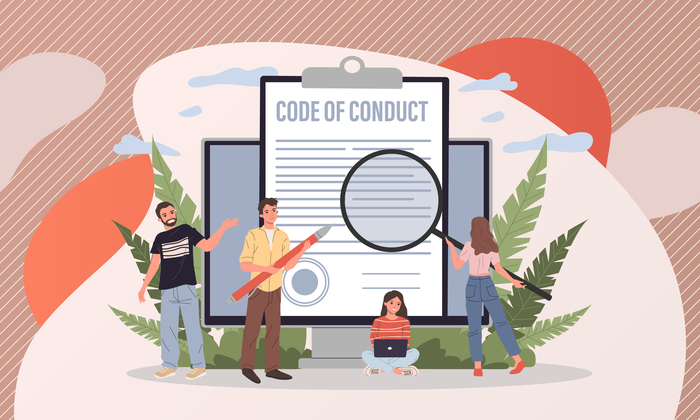In today's fast-paced digital world, media pros are under enormous strain to give the most recent news as soon as possible. However, in their haste to be the first to report on startling news, writers may unintentionally disregard ethical considerations. This can result in incorrect, partial, or sensationalized news, harming the public and eroding confidence in the media.
As a result, it is critical for writers to follow a set of principles that govern their job. In this piece, we will look at the five media principles that every writer should be aware of and adhere to in order to create ethical news.
In today's digital era, the media is critical in molding public opinion and affecting people's views. With tremendous authority, however, comes considerable obligation. As a result, media workers must adhere to a set of ethical standards in order to keep their reputation and avoid breaking any ethical rules.
The media has a major effect on society and is regarded as the fourth branch, having an important part in assuring government and institutional openness and responsibility. However, the influence of the media can be abused if it is not held to ethical norms. This essay will go over the five essential media principles that media workers must adhere to.
What exactly is media ethics?
Media ethics is a collection of rules and standards that journalists must observe when covering news, views, or information. These ethical standards are founded on concepts such as honesty, precision, justice, and neutrality. Following these concepts allows media workers to establish trustworthiness and faith with their public.
The Five Most Valuable Media Ethics
Accuracy:
The basis of responsible writing is accuracy. Media workers must work hard to ensure that the information they provide is accurate and up to date. Before posting any news or information, they should validate their sources and double-check their facts. Inaccurate news can foster public mistrust and have severe ramifications.
Objectivity:
Journalists should be impartial in their reporting and should not allow their personal prejudices or beliefs to influence their job. They should make an effort to show all aspects of the narrative and provide a fair perspective on the circumstance. This helps the media retain its authority.
Fairness:
Fairness is a critical component of media ethics. All people and organizations should be treated honestly and without bias by media experts. They should not prejudice against people based on their ethnicity, gender, faith, or any other aspect.
Privacy:
Individuals and organizations' privacy should be respected by media workers. They should not share any information that could jeopardize a person's image or breach their privacy rights. Exceptions can be made when the public interest outweighs the right to privacy of a person.
Responsibility:
Media workers have a duty to their viewers and community. They should be aware of the effect their reporting has on people and avoid sensationalizing news or presenting incorrect information. They should also be conscious of the implications of their telling and accept accountability for any damage done.
The Value of Media Ethics
Following media ethics is critical for the media's reputation and confidence. It contributes to the media's good image and guarantees that the public gets precise and honest information. Ethical media also contributes to democracy by making governments and organizations liable for their actions.
FAQs:
Q: What occurs when media violate these standards?
A: When writers violate these principles, they run the risk of creating incorrect, prejudiced, or sensationalized news, which can damage the public and undermine confidence in the media. They may also confront legal or ethical quandaries that could jeopardize their image or job.
Q: Do these principles apply only to conventional media sources, or do they also extend to social media influencers?
A: These standards extend to all members of the media, including social media personalities. In today's digital era, anyone can spread information to a large audience, so maintaining high ethical standards across all media channels is critical.
Q: What should a writer do if they are uncertain about a story's ethical implications?
A: Journalists should seek advice from their managers or reference the code of conduct of their organization. They can also seek guidance from expert organizations such as the Society of expert Journalists.
Conclusion:
Finally, media ethics are critical for preserving the media's reputation and confidence. To avoid breaking any ethical rules, media workers should stick to ethical standards such as truth, impartiality, justice, privacy, and accountability. By adhering to these principles, media workers can establish a good image for themselves and their organizations while also contributing to the advancement of an open and equitable society.


